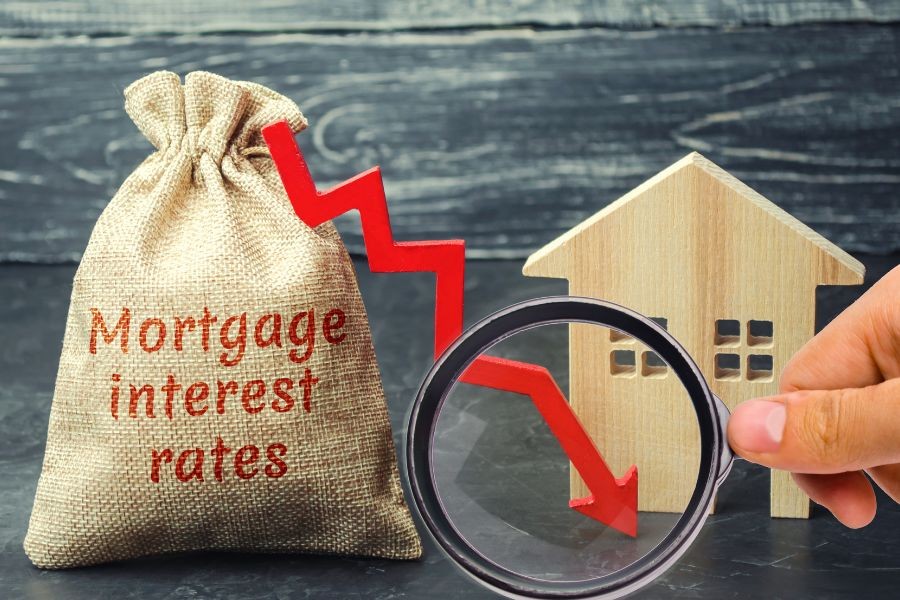As we approach 2025, the question on many New Zealanders' minds is whether mortgage rates will continue their upward trajectory. This topic is not just a matter of personal finance but a significant economic indicator for the country. With housing being a cornerstone of the Kiwi lifestyle, any changes in mortgage rates have profound implications on the economy, affecting everything from consumer spending to investment strategies. To understand the future landscape, it's crucial to delve into the factors influencing these rates and their potential trajectory.
The Current Landscape of Mortgage Rates in New Zealand
New Zealand's mortgage rates have been influenced by a combination of global economic trends and local monetary policies. According to the Reserve Bank of New Zealand (RBNZ), recent hikes have been a response to global inflationary pressures and domestic economic conditions. As of 2023, the average mortgage rate in New Zealand stands at about 6.5%, a significant rise from the sub-5% rates seen in the early 2020s.
The RBNZ's monetary policy plays a pivotal role in setting these rates. With the bank's mandate to maintain inflation within a 1-3% band, interest rate adjustments are a primary tool. Recent data from Stats NZ shows inflation hovering around 3.5%, prompting the RBNZ to consider further rate hikes to curb inflationary pressures.
Factors Driving Mortgage Rates
Several factors contribute to the fluctuation of mortgage rates in New Zealand, including economic growth, inflation rates, and global market trends.
Economic Growth
New Zealand's GDP growth rate is a critical determinant of interest rates. A robust economy typically leads to higher rates as the demand for loans increases. According to the Ministry of Business, Innovation and Employment (MBIE), New Zealand's GDP growth is projected to stabilize around 3% annually, which could exert upward pressure on mortgage rates.
Inflation Trends
Inflation is another crucial factor. The RBNZ uses interest rates to control inflationary pressures. With inflation rates slightly above the target range, the bank might continue to increase rates to bring inflation within desired limits. This is corroborated by the latest economic outlook from the University of Auckland, predicting moderate inflation due to supply chain disruptions and increased consumer demand.
Global Market Influences
International economic conditions, particularly in major economies like the US and China, impact New Zealand's mortgage rates. Changes in global interest rates, trade policies, and economic stability can ripple through to influence local rates. For instance, a tightening of the US Federal Reserve's monetary policy could lead to increased borrowing costs worldwide, including New Zealand.
Pros and Cons of Rising Mortgage Rates
Understanding the implications of rising mortgage rates is essential for both homeowners and investors.
Pros
- Controlled Inflation: Higher rates can help temper inflation, stabilizing the economy.
- Increased Savings Returns: Savings accounts often yield higher returns when interest rates rise.
- Potential for Lower Housing Prices: As borrowing becomes more expensive, housing demand may decrease, leading to more affordable prices for prospective buyers.
Cons
- Higher Borrowing Costs: Increased mortgage rates mean higher monthly payments for homeowners.
- Reduced Consumer Spending: With more income directed towards mortgage payments, discretionary spending may decline, impacting the broader economy.
- Investment Challenges: Real estate investments may become less attractive, potentially slowing down construction and development projects.
Real-World Case Studies: Impact on Kiwi Homeowners
Case Study: Auckland's Housing Market
Problem: Auckland, New Zealand's largest city, has experienced a significant surge in housing prices over the past decade. This has made homeownership challenging for many Kiwis, particularly first-time buyers.
Action: In response to rising mortgage rates, some homeowners have opted for longer-term fixed-rate mortgages to lock in current rates and avoid future increases.
Result: By securing a fixed rate, these homeowners have managed to stabilize their monthly payments, providing financial predictability amid economic uncertainty.
Takeaway: Fixed-rate mortgages can offer protection against future rate hikes, making them a viable option for those seeking long-term financial stability.
Myths and Mistakes in Mortgage Planning
Myth: Fixed Rates Always Cost More
Reality: While fixed rates may initially appear higher, they provide security against future rate hikes, potentially saving money over time. A study by Consumer NZ showed that fixed-rate mortgage holders often pay less in the long run compared to those on floating rates during periods of rising interest rates.
Myth: Rate Hikes Mean Immediate Payment Increases
Reality: Not all mortgage holders are affected immediately. Those with fixed-rate mortgages won't see changes until their term ends. Data from the RBNZ indicates that nearly 50% of Kiwi homeowners are on fixed-rate plans, insulating them from instant impacts.
Future Trends: Mortgage Rates Beyond 2025
As we look beyond 2025, several trends could shape the mortgage landscape in New Zealand. The RBNZ's monetary policy will continue to be a significant driver, but technological advancements and shifts in international markets will also play crucial roles.
By 2028, it's anticipated that digital platforms will dominate mortgage services, streamlining application processes and offering more competitive rates. According to a report by Deloitte, New Zealand could see a 20% increase in fintech adoption in the mortgage sector by 2028, enhancing accessibility and competition.
Conclusion: Navigating the Mortgage Landscape
The trajectory of mortgage rates in New Zealand is influenced by a myriad of factors, from domestic economic policies to global market trends. For Kiwis looking to navigate this landscape, understanding these dynamics is crucial. As rates potentially rise, exploring fixed-rate options and leveraging digital tools can provide financial stability and strategic advantages.
What do you think? How are you planning to manage your mortgage in the face of potential rate hikes? Share your thoughts and strategies in the comments below!
Related Search Queries
- Current mortgage rates in New Zealand 2025
- Impact of rising mortgage rates on NZ economy
- Fixed vs. floating mortgage rates NZ
- New Zealand housing market predictions 2025
- How to refinance a mortgage in New Zealand

































Consulting 24
10 months ago